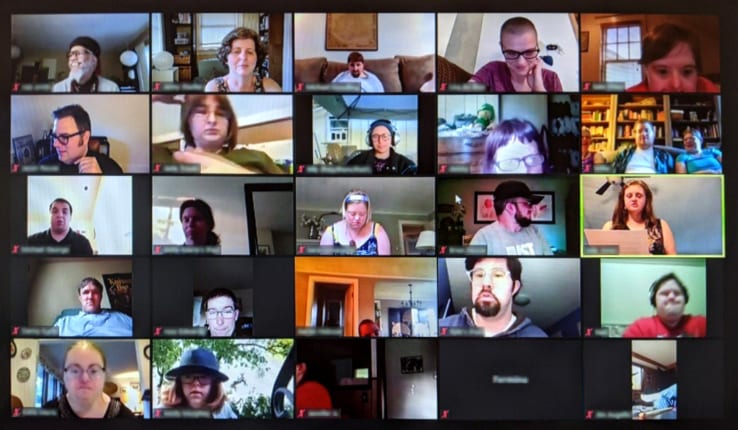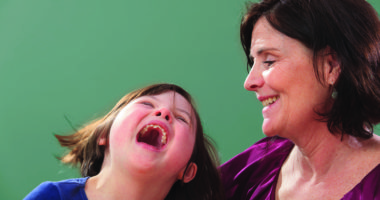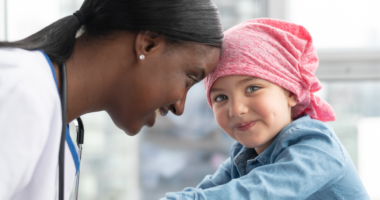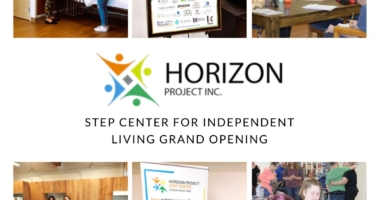
Guest post by: Jenny Stadler, Executive Director, PHAME
Our world has changed entirely in the months since the pandemic began. And yet here at PHAME Academy, many things have remained constant – especially creativity and connection. PHAME is a Portland-based arts organization that harnesses arts education and performance to empower adults who experience disabilities. At our heart, we’re a school. Each year we have three ten-week terms where we offer more than 25 classes, including videography, improv, digital photography, and yoga. We produce one big musical production each summer, and multiple smaller performances throughout the year. PHAME sits at the center of many of our students’ lives, serving as a primary source of community and social sustenance.
In March, when the world shut down due to Covid-19, we shut down too. We spent the first few days despairing about our students, and social isolation, and the economic viability of trying to maintain an arts non-profit without in-person events. We worried. To tell the truth, we shed a few tears.
And then we went to work.
Thanks to amazing funders like the Kuni Foundation, and to the ingenuity, creativity and flexibility of both our staff and students, I’m proud to say that six months into this pandemic, PHAME is truly flourishing. What in March seemed like limitations have now become opportunities. In three weeks we moved our classes online, starting with an abbreviated spring term. We revised classes to be Zoom-friendly, and added courses specifically designed to be taught online, including line-drawn animation and radio drama. Spurred by those successes, this summer we ran concentrated classes in which students created collaborative videos. And now here we are in fall term, with class offerings and enrollment as high as we had pre-pandemic. We’re providing social and performance opportunities—from drop-in social hours multiple times a week to a regularly scheduled Cabaret. In addition to serving our long-time students, we’re serving students from six states outside of Oregon, including Tennessee and Massachusetts.
The pandemic has absolutely magnified the inequities faced by people who experience disabilities. It has also uncovered what many people with disabilities already knew: opportunities for virtual engagement (like Zoom classes) allow many people who experience disabilities to participate in activities that they are often excluded from. Some of our students are even participating more freely now that we’re online, because learning from home just works better for them. We now anticipate that PHAME will always offer some portion of our programming online. Certainly, online programming has its challenges—from poor wifi connections to the inevitable mute button fiasco—but what we’ve done to resolve these challenges has made our organization stronger, kept our students connected, and enabled more students to participate with us.
We don’t know what lies ahead, but at PHAME we’re committed to weathering this storm. PHAME students and staff will be here for the long run, creating and sharing art, fostering community, and doing our part to build a more equitable world.
Learn more about PHAME’s exciting and impactful work here:
https://www.youtube.com/watch?v=bSEaQjj-wGU




